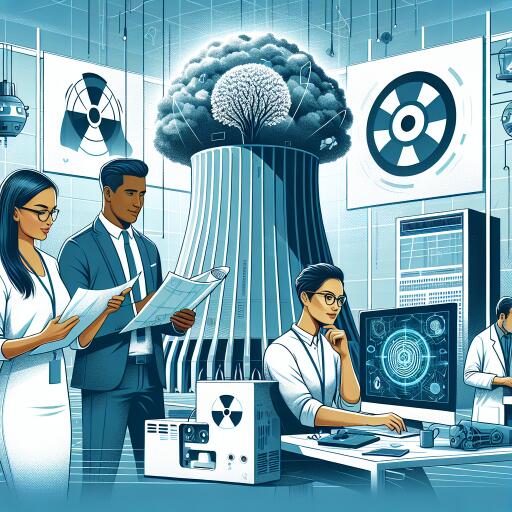
Meta Pushes for Nuclear Energy to Power AI Innovations
Meta has taken a bold step toward a sustainable future by announcing its intention to incorporate nuclear energy into its energy strategy. This move is intended to support the rising energy demands driven by rapid advancements in artificial intelligence and the widening influence of data center operations.
With a plan to initiate a Request for Proposals (RFP), Meta seeks to engage nuclear energy developers in the United States to introduce between 1 to 4 gigawatts (GW) of new generation capacity by the early 2030s. This initiative underscores the company’s commitment to addressing energy needs through reliable and low-carbon power sources, such as nuclear energy.
Recognized for its stability and minimal environmental impact, nuclear energy is poised to play a crucial role in diversifying and strengthening the electricity grid. Meta’s move is consistent with its broader sustainability goals, which have already seen investments in a range of renewable energy technologies, including solar, wind, battery storage, and geothermal projects.
The vision for nuclear energy at Meta is that it will serve as a baseload power source, ensuring seamless energy supply for its digital platforms and the communities tied to them. By launching the RFP process, Meta intends to partner with developers adept in permitting, designing, constructing, and operating nuclear facilities to not only meet its energy demands but also to advance industry-wide decarbonization objectives.
Despite the acknowledged difficulties in nuclear energy — such as hefty initial investments, extended development durations, and demanding regulatory standards — Meta is optimistic about overcoming these barriers. The company anticipates that scaling nuclear projects could drive cost reductions and significantly influence global energy transitions.
Compared to other renewable energy sources like solar and wind, nuclear power stands out due to its longer operational life and reliability, which are critical factors for supporting AI technologies and other forward-looking innovations. By involving developers from the early stages of nuclear projects, Meta aims to achieve operational excellence and cost-effectiveness through well-conceived long-term agreements.
Since 2020, Meta has proudly aligned its worldwide operations with a commitment to 100% clean and renewable energy, with over 12,000 MW worth of renewable energy contracts secured globally. The incorporation of nuclear energy is a continuation of this commitment, reinforcing Meta’s ambition to create a grid that is not only sustainable and dependable but also future-ready to nurture innovation.





Leave a Reply